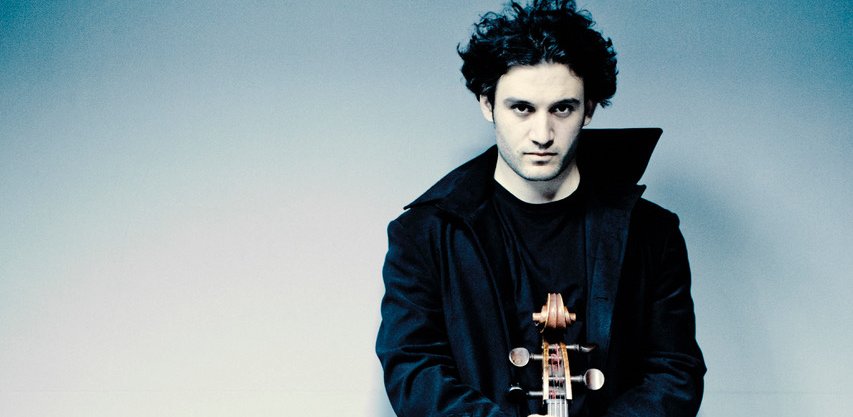Nicolas Alstaedt adores Hungarian culture from Béla Hamvas through André Kertész to György Kurtág and he is always happy to visit Budapest. He both plays the cello and leads our Baroque ensemble at our concerts on January 8&9. Read our interview to get closer to the artist.
BFO: Considering your cool, easy-going look few people would think that you are so obsessed with classical music. Do you create this contrast on purpose?
Nicolas Altstaedt: I don't think it's conscious in any way. I'm like that and I don't really care what people think when they see me on the street. And the hard work, that goes into what I consider most important – music – is maybe not written on me when I walk on the street. Nor will it reveal the doubts and difficult moments that are part of the life of being a musician. As a musician you are faced with masterpieces of truth and infinity, that you try to grasp and recreate. But how can you ever come to a point, where you can say you gave a fully valuable interpretation of a piece by Bach or Beethoven? As a musician you have to accept imperfection. But it is this horizon that keeps you fresh and endlessly inspired. Have a look how alive and young music has kept personalities like Menahem Pressler, Herbert Blomstedt or Ivry Gitlis. I personally experienced the same with my teacher Eberhard Feltz, with whom I am constantly working on some various repertoire. He's 85 years old, but when he gets close to a score, he immediately goes back many decades.
BFO: You mentioned Béla Hamvas. How come that you read a book by a Hungarian writer?
N. A.: He was recommended by the teacher I mentioned. It is a collection of several essays, one about what we could call „Lebenswerk” and one about Beethoven and the 7th symphony, mentioning various character traits of birds and insects. I think that should be interesting to every musician.
I have had a close relationship with Hungary since a while. Barnabás Kelemen is a good friend of mine and I have been regularly at the summer festivals in Budapest and Kaposvár. I also often listened to classes by Kurtág and Rados at the International Music Seminar in Prussia Cove, that had a huge influence on a generation of musicians. So I became more immersed in Hungarian culture, I read Márai, Antal Szerb and others. But it's not only Hungarian literature and Hungarian music that inspires me, I also chose for example a photo of André Kertész for each album cover of my Lockenhaus series.
BFO: Then you must be delighted to come back to Budapest for the BFO concerts in January.
That's right, I love travelling to Hungary. I am also looking forward to the next meeting.
BFO: In addition to playing the cello, you will also conduct the baroque ensemble at our concerts in Budapest. I've always wondered how one can pay attention to so many things at the same time.
N. A.: I may disappoint you, but believe me, it's much easier to lead by playing. When you play an instrument, you communicate your vision directly without a visual or verbal translation, that can be a disturbance for the musicians. Through sound you can communicate the most immediate, that is why music is the most powerful language.
BFO: What should we know about the concert in advance? What would you highlight as particularly interesting?
N. A.: I think Antonio Caldara was certainly a very interesting composer, and it is worth knowing that he moved from Venice to Vienna as a young man, and how much this change of culture left its mark on his entire musical repertoire and his works. He wrote 60 or 70 operas, of which unfortunately very few survived for our time, but he was an incredibly prolific and talented composer. I came across his works about 10 years ago, hopefully a sign of Renaissance. And then I must mention Vivaldi, who composed at least 27 cello concertos and has a significant impact on our instrument’s repertoire.
BFO: Finally, may I ask you about your family and how you became a musician?
N. A.: My father is a doctor, but art, especially music, has always been very important to him. My German aunt plays the organ and married a French cellist. Incidentally, my father also happened to find himself a French wife and plays the piano and the cello, very little, but he plays in an amature orchestra. My brother, who is two years older than me, picked up the piano and became a conductor. So the cello was the other instrument in the room and once I picked it up, I never questioned it or was longing for something else.

